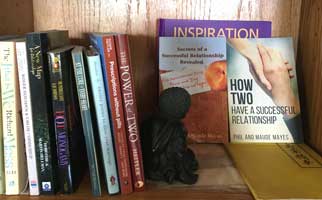Successful Relationship Reading Corner

In this week's blog, we write about truth and white lies in your relationship. Here are some links to some interesting studies and thoughts on this topic.
Little White Lies: How Dishonesty Affects Intimate Relationships "Whatever the type of lie or reason behind it, when we lie so frequently, we build up a tolerance for lying itself. This means it can become easier to tell bigger lies when we think they’re called for. And while we may tell white lies to protect others, we might also begin to lie more to protect ourselves. This is where the problem begins. We may justify lying to ourselves as lying to protect a relationship, but actually we’re doing it to save our skin."
Little White Lies: How Dishonesty Affects Intimate Relationships "There are thousands of ways we can deceive one another—and ourselves. On one hand, we can deliberately mislead others to enhance our own personal gain, deny responsibility for having done something wrong, or cheat or steal to get ahead. Then there are smaller fibs—like telling white lies to ease a friend’s distress or displaying confidence in our abilities when we have little to no idea what we’re actually doing. Hey, we've all done it. But studies suggest lying can take a toll on our wellbeing and interfere with the quality of our relationships. Time for some real talk about all this deception."
Even Little White Lies Hurt Your Health "Still, simply because lying has become “common” doesn’t make constant lying “normal.” It’s terrible for your mental health, for one. Something you may have become immune or numb to is that sick feeling inside yourself when you tell a lie. That’s your conscience telling you, “This is wrong and you shouldn’t be doing it.” Depending on the lie, that sick feeling can grow. Over time, it can become a constant knot in the pit of your stomach or cause you to lose sleep or trigger depression."
|